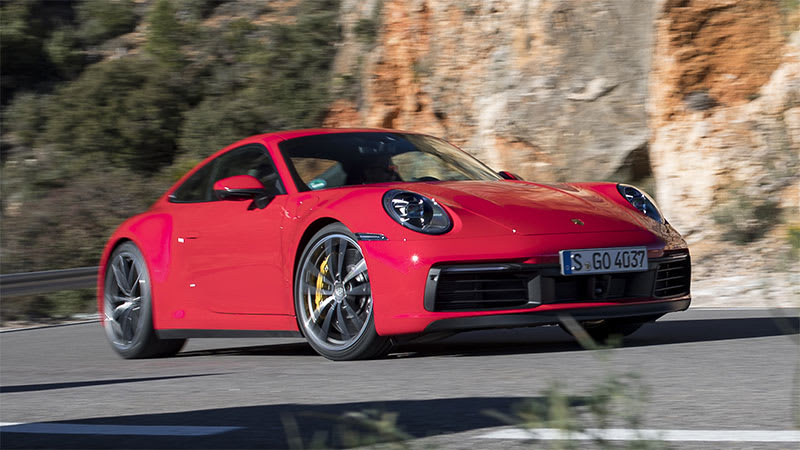Audi Repair Shop Doylestown
Call 267 279 9477 to schedule a appointment

During the 2020 992-series
launch in
,
Wheels
magazine spoke to Paul Watson,
Australia’s in-country technical representative. When the conversation turned to carbon ceramic brakes, Watson surprised his questioners with the statement that “if you’re doing club days we’d always recommend iron discs.” This is an unexpected take considering how carbon ceramic rotors have been promoted as an open-secret weapon for track days.
Watson explained that “ceramic discs can degrade if you’re hard on the brakes” and that “heat build-up will degrade the carbon fibers in the disc.”
wear comes no matter the rotor material, though.
The context of Watson’s statement comes when he says, “When we first launched the discs we told people they’d last virtually for the life of the car and people were doing a number of trackdays and coming back to us saying ‘I’ve worn them out.'” The issue isn’t about the pure performance value of carbon brakes, but the cost-vs-performance value compared to iron rotors.
its SGL carbon ceramics as lasting 100,000 miles. The company
on the page to say they have “a four times longer lifetime and an obviously less brake pad wear” than cast iron discs. Your mileage would certainly vary.
A little time on any
forum bears out Watson’s anecdote. Forum threads going back at least five years debate whether the Porsche Carbon Ceramic Brakes (PCCB) justify their new and replacement costs. Porsche asks $8,520 to put PCCB on the 992-series 911, and $9,210 to option them on the 911 GT3. A set of replacement rotors
for the front axle costs $11,500
. Aftermarket carbon brake kits made just for Porsche, and that can be refurbished,
instance,
, or
. And they require specific, expensive pads.
For the hardcore trackie, that’s a lot of cast iron rotors. The
, for instance, is one-third the price of the Brembo carbons; an AP Racing kit is one-fourth the price. Which is why some people recommend buying a
and storing the PCCBs until an owner resells the car, and why
is full of videos of Porsche owners swapping out the carbon ceramics. On that note, carbon brakes are notoriously fragile. If the home mechanic chips the rotors, there’s another mongo money
.
Carbon brake kits are lighter, look cooler, and should last a lot longer than cast iron discs on the road. They also don’t create any brake dust – a good thing for J.D. Power survey respondents and the fishes.
A Washington State University paper said
minute amounts of copper from brake dust is killing salmon in the Pacific Northwest,
from
the Ecological Society of America
.
So when
Wheels
asked Watson who carbon ceramic brakes
are
for, he replied, “People who don’t like cleaning their wheels. They don’t leave a build-up of brake dust, so that’s an advantage.”
from Autoblog https://ift.tt/2FnVk1N
